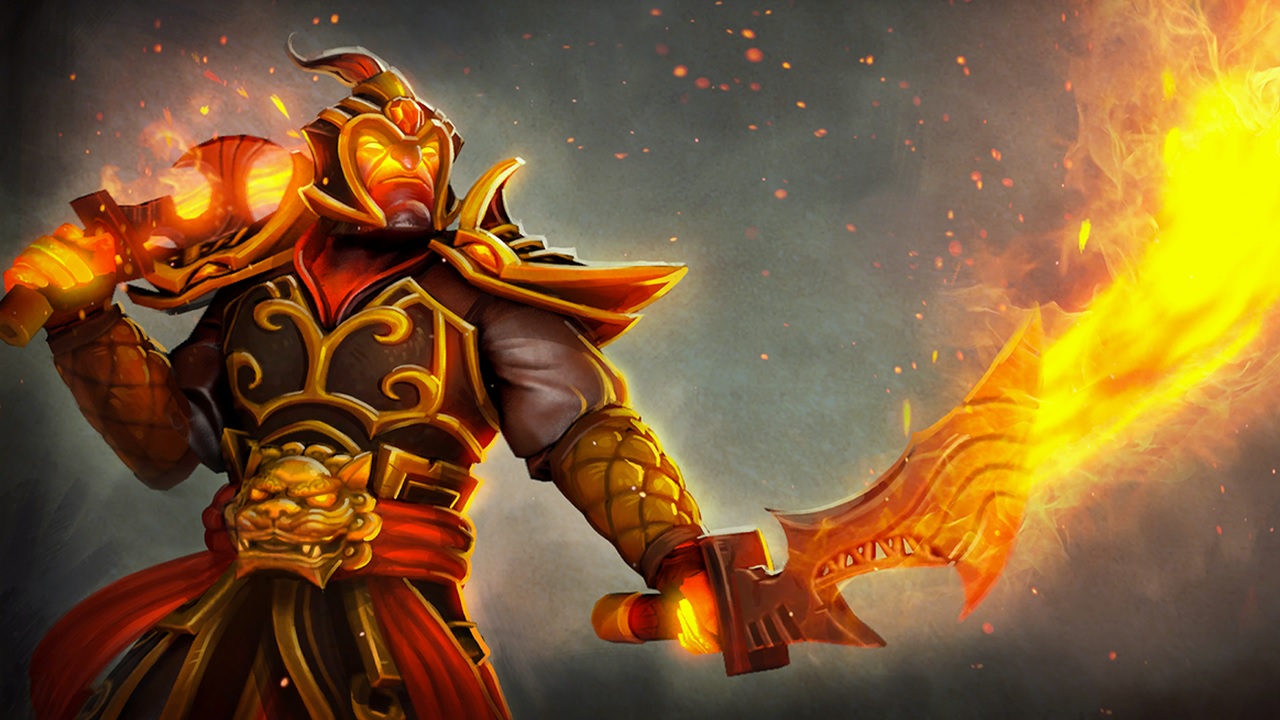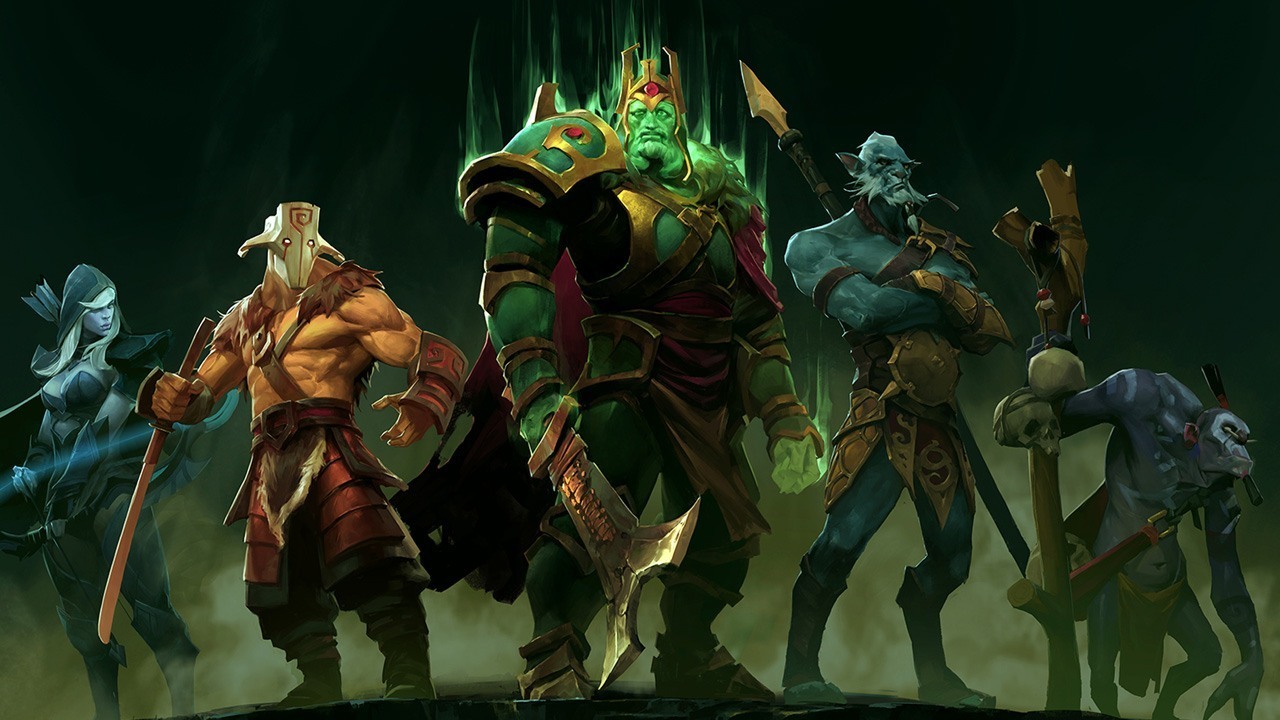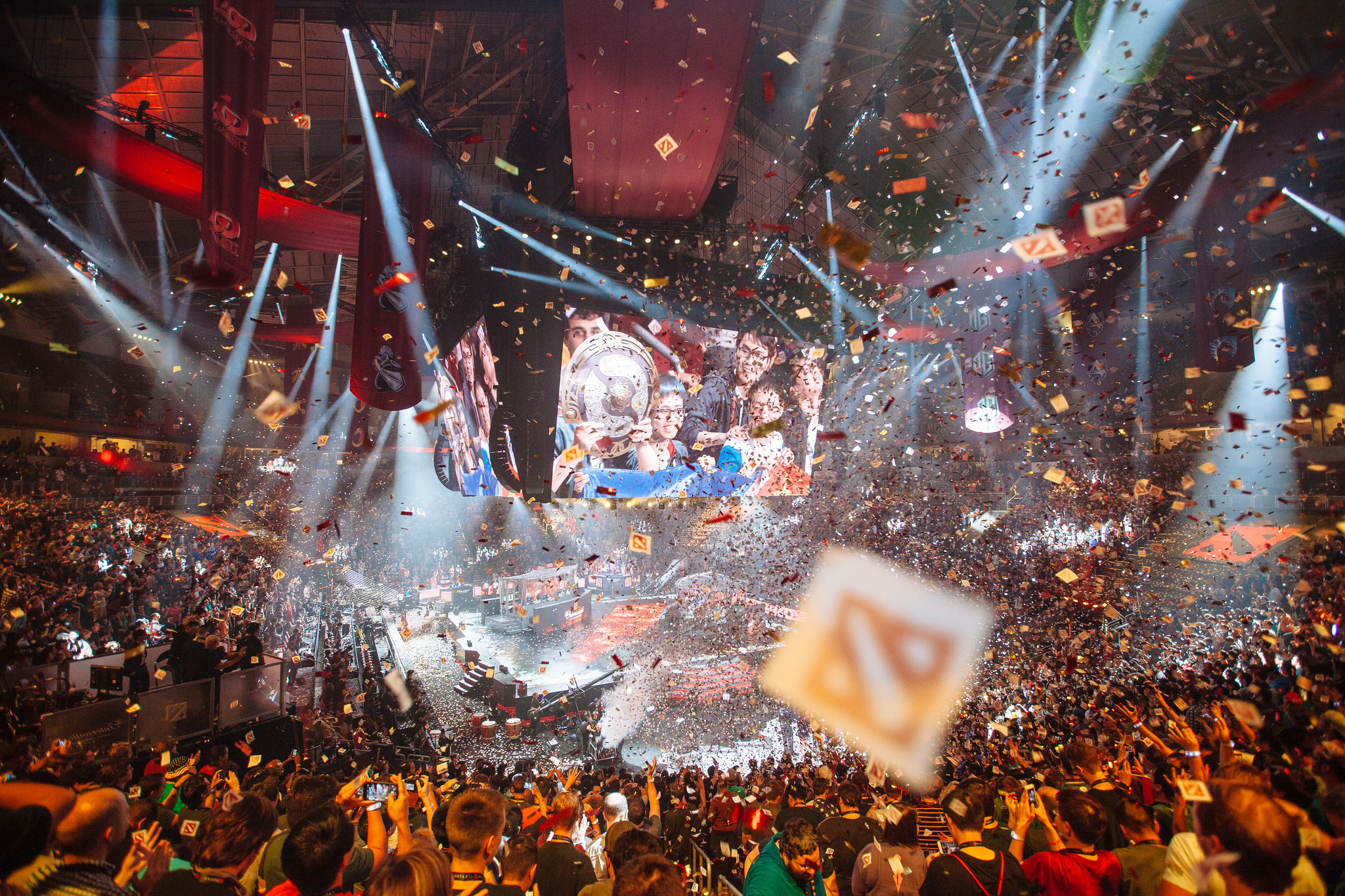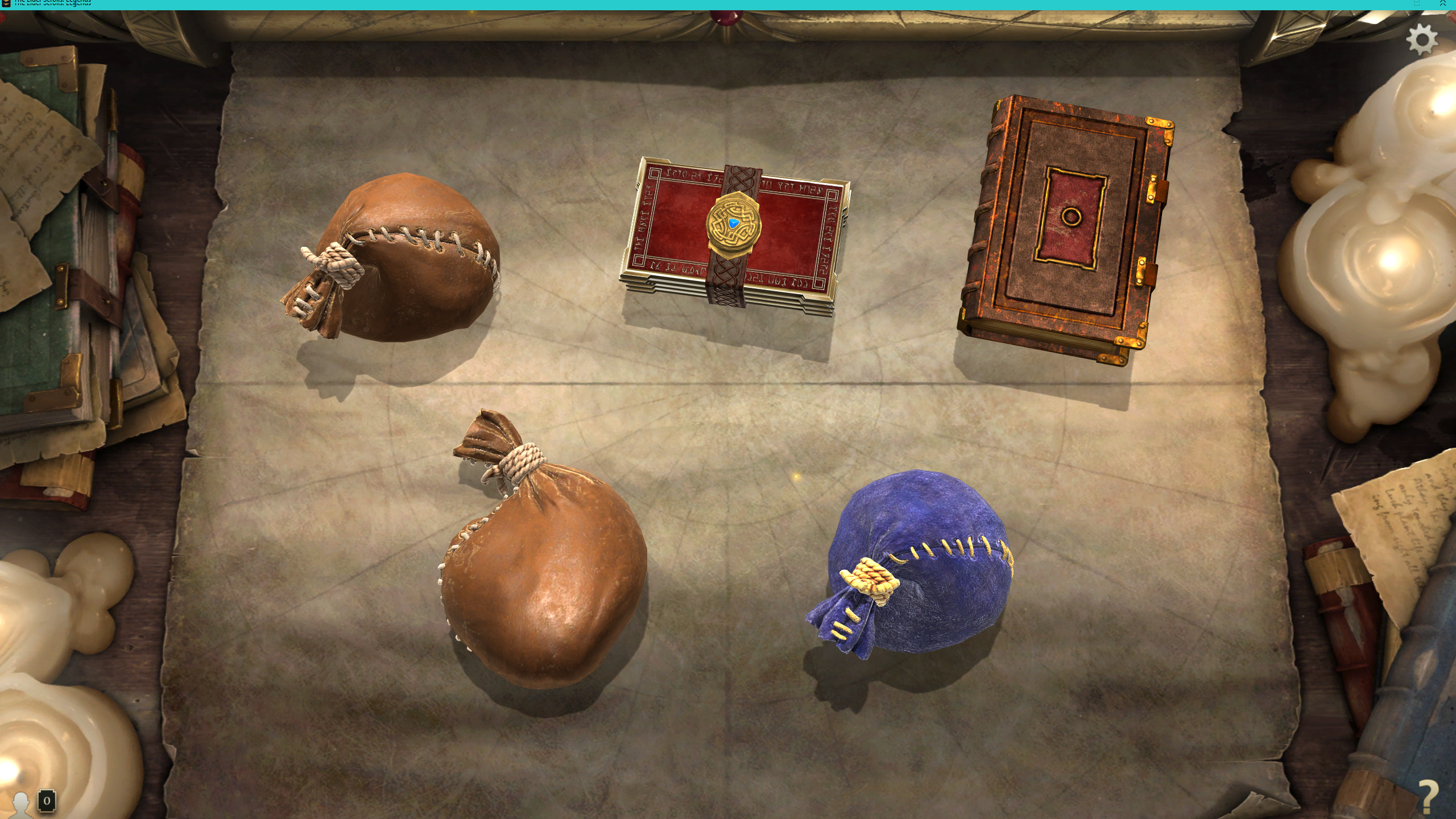How Valve could change the card game genre with Artifact
Valve's first new game since Dota 2 in 2013 has an opportunity to reinvent how we play digital cards.

The biggest surprise so far out of The International wasn't a wild play or a surprise upset, but the first game announcement from Valve since 2013. Artifact is a digital Dota card game coming in 2018, and we know almost nothing about it. But from our experience with Valve and tons of other card games on the market, we can make informed guesses about what form Artifact will take.
Digital card trading and selling
This has to be the huge one. Though there's some precedent for a digital TCG in Magic Online that allows players to swap cards, the likes of Hearthstone, Gwent and the other leading digital CCGs don't. (Also the Magic client is so bad—it's less a fantasy battler than an Excel fever dream—that it can be pretty much discounted from the discussion. At least until we find out what Magic: The Gathering - Arena actually is).
Whatever your thoughts on in-game items, Steam Market is the most established and trusted exchange for moving cosmetics and other virtual goods between strangers and friends. Gambling controversies aside, it's supported millions of players trading skins in CS:GO, H1Z1, PUBG, and, yeah, Dota 2.
Really interested to see how @PlayArtifact impacts the saturated card game scene. Ability to trade/sell on Steam market can be the x factor.August 9, 2017
Few of us enjoy opening packs just to earn enough crafting material for the one legendary card we need. As Hearthstone caster Dan "Frodan" Chou noted on Twitter last night, Valve's ability to leverage the bustling Steam Market potentially makes for a very different experience for players looking to build a collection quickly, with an obviously incredibly lucrative upside. Some form of limited trading would add to the current crop of card games. Bigger brains than ours can work out the exact restrictions needed, but it could be that you can only trade a certain amount of cards per calendar month, or only to people who've been on your friends list for a predetermined amount of time.
Or Valve could just flip the tables and let players go hog wild. Either way it would be exciting, and would eliminate one of the core complaints existing CCG players have which is that your collection retains no value given the rules against account selling. Being able to trade would also open up scope to create especially rare cards, limited promotional runs with alternate art and so on, which would potentially add richness to the scene during the quieter times between expansions.
It might actually use your GPU
Although Elder Scrolls: Legends debuted on PC, sitting on our platform for more than a year before coming to mobile recently, it and other card games are built with all platforms in mind. They make major compromises in order to run on touchscreen devices that don't have an expensive GPU.
There's a real possibility that Artifact will a PC-exclusive game. One of the benefits of this decision would be having the freedom to take better advantage of PC hardware. As things stand in Hearthstone, the state of the art in terms of animation is stuff like the recently revamped Deathwing entrance. Blizzard's artists have to consider how their work will be crammed into mobile phone apps, which must limit the pyrotechnics. (And also explains why many effects, such as Hellfire, Abyssal Enforcer and so on) just use different colourways. Given that phone users already complain bitterly about the size of the app, it seems unlikely that Hearthstone (or other CCGs designed for phone and tablet) will ever be able to go truly ham with the visuals.
The biggest gaming news, reviews and hardware deals
Keep up to date with the most important stories and the best deals, as picked by the PC Gamer team.
But what if Artifact did? Truly spectacular graphics would make for quite the point of differentiation, but the obvious counterpoint is that this is genre made for mass consumption, and Valve sure does like money. But the counter-counterpoint is that the company has never made a mobile game before. It may not be in a hurry to start now given the vastness of the audience on its own proprietary platform.

...and your mouse and keyboard
We've actually seen several interesting takes on card games over the past couple of years, from games like Faeria where you and your opponent build a hex-tiled board as you play, to Gwent, which takes health points, mana, and combat out of the equation.
It'd be nice if Artifact was more than Gabestone: Heroes of Dota with an item economy. Valve could push the genre forward by taking advantage of keyboard and mouse in unexpected ways, like, I don't know… hotkeys? Manual shuffling? Real-time elements? Base-building? Whatever happens, it won't be the first card game with lanes.
It could be the first CCG to seriously take on Blizzard
The CCG genre has never been more fertile on more PC, and is arguably already oversaturated with alternatives. But there's a good reasons why none of these games—despite many being mechanically excellent—have take a serious bite out of Hearthstone's market share, and that's Blizzard's big ol' chequebook. Few publishers can compete with the depth of those pockets, and as we've seen even Bethesda has struggled to make a significant dent despite what looks like serious investment. Valve is one of the few companies who can afford to take a real crack at this. And as we've seen from CS:GO and Dota, the model it prefers is to have games that are open to everyone but come with a potentially high skill cap. Again here's Frodan pondering the idea of low barriers to entry...
Also curious to see if they will do it with low entry barrier similar to their other games...especially when marketed as a DOTA CGAugust 9, 2017

It's a chance to take esports seriously from the start
Notwithstanding the let's say "mixed" reaction from the audience of MOBA fans when Artifact was announced, it's reasonable to assume that if the game takes off it'll eventually become a big part of future iterations of The International. Obviously, without having seen anything of the actual game beyond some animated crystals yet, there's no sense in predicting how competitively Artifact will be balanced. But equally I'd be amazed if Valve hasn't paid close attention to the biggest complaint about Hearthstone being it's reliance on wacky RNG effects. And while Blizzard has put on plenty of tremendous tournaments, the esports scene also sees a lot of grousing from the pros about how things are structured and managed.
The list of complaints runs from having to grind ladder on New Year's Eve for HCT points, through playing crucial qualifiers in Buffalo Wild Wings restaurants, to the Chinese contingent being given the wrong rules before a recent major event. None of which is to say Valve hasn't made mistakes, or been involved in drama, with how it has handled CS:GO and Dota as esports—but what can't be denied is that those are games have massive, built out, competitive scenes that are taken seriously by viewers. The question is whether the same could be done for any digital CCG, and indeed whether that's a route Valve even wants to go down. But again, it feels like there's huge potential here if they get it right, and the fact the Dota brand is being used has to heavily hint the goal is serious competition.

Valve could take the concept of 'Twitch Drops' to the next level
The Elder Scrolls: Legends saw significant success from a new scheme which randomly rewarded players with in-game currency in exchange for watching streamers playing the game on Twitch. Until recently these Twitch 'Drops' were insanely generous, helping new players to build their collections fast. Unsurprisingly, they're also hugely popular, dominating chat on most channels. But the idea itself isn't new, and was in fact pioneered by Valve, which was giving viewers 'Souvenir Packages' for watching CS:GO way back in 2014. You can bet that in Bellevue the Artifact design team will have been watching Bethesda's Drops experiment with interest, and working out how the system can be improved upon for their own game.

Evan's a hardcore FPS enthusiast who joined PC Gamer in 2008. After an era spent publishing reviews, news, and cover features, he now oversees editorial operations for PC Gamer worldwide, including setting policy, training, and editing stories written by the wider team. His most-played FPSes are CS:GO, Team Fortress 2, Team Fortress Classic, Rainbow Six Siege, and Arma 2. His first multiplayer FPS was Quake 2, played on serial LAN in his uncle's basement, the ideal conditions for instilling a lifelong fondness for fragging. Evan also leads production of the PC Gaming Show, the annual E3 showcase event dedicated to PC gaming.

